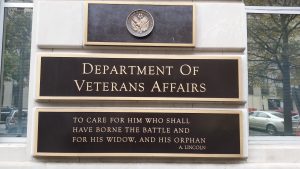On December 13, the U.S. Court of Appeals for the Fifth Circuit decided the case of United States of America, e ex rel. Jeffrey M. Simoneaux v. E. I. duPont de Nemours & Company. Reversing the district court, the Fifth Circuit held that “potential or contingent penalties” are not obligations under the federal False Claims Act (FCA) and they are not obligations under the FCA “even when a statute requires immediate action from a violator,[because] the Government must still choose whether to impose a penalty.” Continue Reading ›
Articles Posted in Government Contracts
Texas District Court Stays “Blacklisting” Rule
Our colleagues Julia Judish, Dick Oliver and Glenn Sweatt recently published a very interesting client alert discussing U.S. District Court Judge Marcia A. Crone’s issuance of a preliminary injunction that suspends the implementation of certain portions of President Obama’s Executive Order 13673, called the Fair Pay and Safe Workplaces Executive Order, that otherwise would have gone into effect on October 25. Judge Crone enjoined two key provisions in the new regulations that would require government contractors and subcontractors to report adverse labor law determinations and prohibit pre-dispute arbitration agreements regarding matters under Title VII of the Civil Rights Act and torts based on sexual assault or harassment. These regulations, commonly called the “blacklisting” rule by opponents, could be used to preclude otherwise qualified government contractors from receiving awards of federal procurement contracts. The alert is titled Executive Order Stayed by District Court Judge.
Additional Source: Associated Builders and Contractors of Southeast Texas v. Rung, No. 1:16-CV-425 (E.D. Tex. Oct. 24, 2016); Final Rules and Guidance Issued on “Blacklisting” Executive Order
Federal Contractors and Subcontractors Take Note of DOL’s Final Rule Requiring Paid Sick Leave
The U.S. Department of Labor has issued its final rule implementing President Obama’s 2015 Executive Order 13706, “Establishing Paid Sick Leave for Federal Contractors,” an executive order requiring federal contractors and subcontractors to provide their employees working on covered government contracts with up to seven days of paid leave per year for covered purposes. Our colleagues Rebecca Rizzo, Glenn Sweatt, Julia Judish and Dick Oliver discuss the final rule in their recent publication Department of Labor Issues Final Rule Requiring Federal Contractors to Provide Paid Sick Leave.
“Blacklisting” Executive Order Final Rule Issued
Our colleagues, Kimberly Higgins, Julia Judish, Selena Brady, Rebecca Carr Rizzo, John Jensen and Dick Oliver, today published their alert titled Final Rules and Guidance Issued on “Blacklisting” Executive Order, Controversial Mandate Requires Disclosure of Labor and Employment Violations as Part of the Federal Contracting Process discussing the Federal Acquisition Regulatory Council’s final rules and the Department of Labor’s published final guidance implementing President Obama’s 2014 “Fair Pay and Safe Workplaces” Executive Order 13673.
Small Business Mentor-Protégé Program
Our colleagues Dick Oliver, Selena Brady and Travis Mullaney, in SBA To Begin Accepting Online Applications for Small Business Mentor-Protégé Program, encourage everyone to check out the Small Business Administration’s (SBA) new government-wide mentor-protégé program for all small businesses, covering Historically Underutilized Business Zone (HUBZone) businesses, Women-Owned Small Businesses (WOSB), Service-Disabled Veteran-Owned small businesses (SDVOSB), and other small businesses generally. The new program expands mentor-protégé access to a wider community of federal contractors than the pre-existing SBA 8(a) Business Development program. The SBA will start accepting applications for the new Small Business Mentor-Protégé Program via the online portal on October 1, 2016.
SBA Issues Final Rule re “Small Business Mentor Protégé Programs”
My colleagues Dick Oliver and Selena Brady recently published an alert discussing the Small Business Administration’s (SBA) long-awaited Final Rule regarding “Small Business Mentor Protégé Programs” that establishes a government-wide mentor protégé program for all small businesses, including Historically Underutilized Business Zone businesses, Women-Owned Small Businesses, Service-Disabled Veteran-Owned small businesses, and small businesses generally. Of note, the Final Rule enables virtually all federal contractors to quickly begin participating in the small business mentor protégé program. The alert is titled SBA’s Small Business Mentor Protégé Program Expands Opportunities for Small and Large Businesses.
SCOTUS Strikes a Blow to Government Contractors
In Supreme Court Validates “Implied Certification” Liability Under False Claims Act,  we and our colleague Danielle Vrabie discuss the U.S. Supreme Court’s June 16, 2016 decision in Universal Health Services, Inc. v. United States ex rel. Escobar, No. 15-7. The government contractor and health care communities had hoped the Court would use this case to narrow the scope of liability under the federal False Claims Act (FCA). That did not happen. Rather, a unanimous Court held that: (1) “implied certification” is a valid theory of liability under the FCA and (2) FCA liability for failing to disclose violations of legal requirements depends on the “materiality” of those requirements, not on whether those requirements were express conditions of payment. The Court’s holdings expand the scope of FCA liability previously recognized in several jurisdictions, resulting in a defeat for companies that sell to or seek reimbursement from the federal government.
we and our colleague Danielle Vrabie discuss the U.S. Supreme Court’s June 16, 2016 decision in Universal Health Services, Inc. v. United States ex rel. Escobar, No. 15-7. The government contractor and health care communities had hoped the Court would use this case to narrow the scope of liability under the federal False Claims Act (FCA). That did not happen. Rather, a unanimous Court held that: (1) “implied certification” is a valid theory of liability under the FCA and (2) FCA liability for failing to disclose violations of legal requirements depends on the “materiality” of those requirements, not on whether those requirements were express conditions of payment. The Court’s holdings expand the scope of FCA liability previously recognized in several jurisdictions, resulting in a defeat for companies that sell to or seek reimbursement from the federal government.
Photo: Pixel Addict, Depressed, May 21, 2007 – Creative Commons
SCOTUS Decision Expected to Alter Landscape for VA Procurement
In Supreme Court: the VA Must Apply the “Rule of Two” in all Contracting Decisions,  Pillsbury attorneys David Dixon and Dick Oliver discuss the U.S. Supreme Court’s June 16 unanimous ruling that the U.S. Department of Veterans Affairs (VA) must give preference to veteran-owned small businesses for all VA procurements as long as the requirements of the “Rule of Two” are met. This decision is expected to drastically alter the landscape for VA procurement. This ruling is Kingdomware Technologies, Inc. v. United States.
Pillsbury attorneys David Dixon and Dick Oliver discuss the U.S. Supreme Court’s June 16 unanimous ruling that the U.S. Department of Veterans Affairs (VA) must give preference to veteran-owned small businesses for all VA procurements as long as the requirements of the “Rule of Two” are met. This decision is expected to drastically alter the landscape for VA procurement. This ruling is Kingdomware Technologies, Inc. v. United States.
Photo: JeffOnWire, Department of Veterans Affairs Motto, Taken November 16, 2014 – Creative Commons
Construction Bond Basics
There are three types of bonds that afford financial protection in connection with a construction project: payment bonds,  performance bonds, and bid bonds. Below is a primer on the differences between these bonds and who is protected by them.
performance bonds, and bid bonds. Below is a primer on the differences between these bonds and who is protected by them.
Construction Bonds
Construction bonds may be required by contract or by statute. Although often issued by an insurance company, these bonds are not insurance. Instead, the surety guarantees to the obligee (the entity to which the bond is issued) that the principal (the party who is supposed to perform) will meet its obligations. Most construction bonds require the principal to sign a guarantee. Thus, if an obligation is not met and the surety is required to pay a claim, the surety generally has the right to seek recovery from the principal.
Cloud Computing in the Federal Market Place
In FedRAMP Accelerates the Process for Federal Contractors to Obtain Cloud Service Provider Authorizations and DoD Revises its Cloud Computing Security Requirements Guide for FedRAMP+,  my colleague Selena Brady and I discuss cloud computing requirements for contractors in the federal market place. For those providing cloud services, it is a time of landmark changes.
my colleague Selena Brady and I discuss cloud computing requirements for contractors in the federal market place. For those providing cloud services, it is a time of landmark changes.
Photo: Daniel Boyd, Clouds, Taken June 29, 2010 – Creative Commons
 Gravel2Gavel Construction & Real Estate Law Blog
Gravel2Gavel Construction & Real Estate Law Blog


